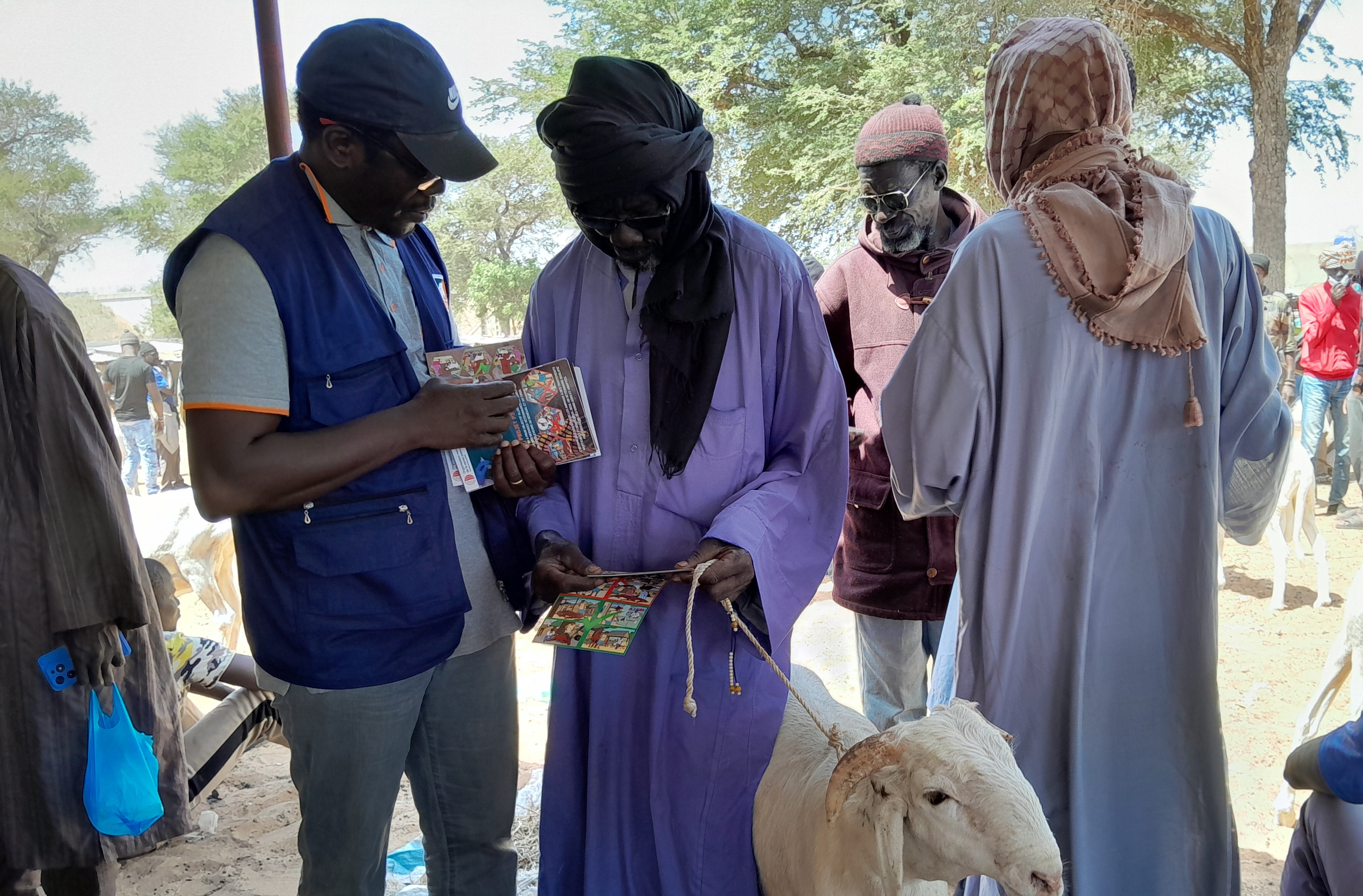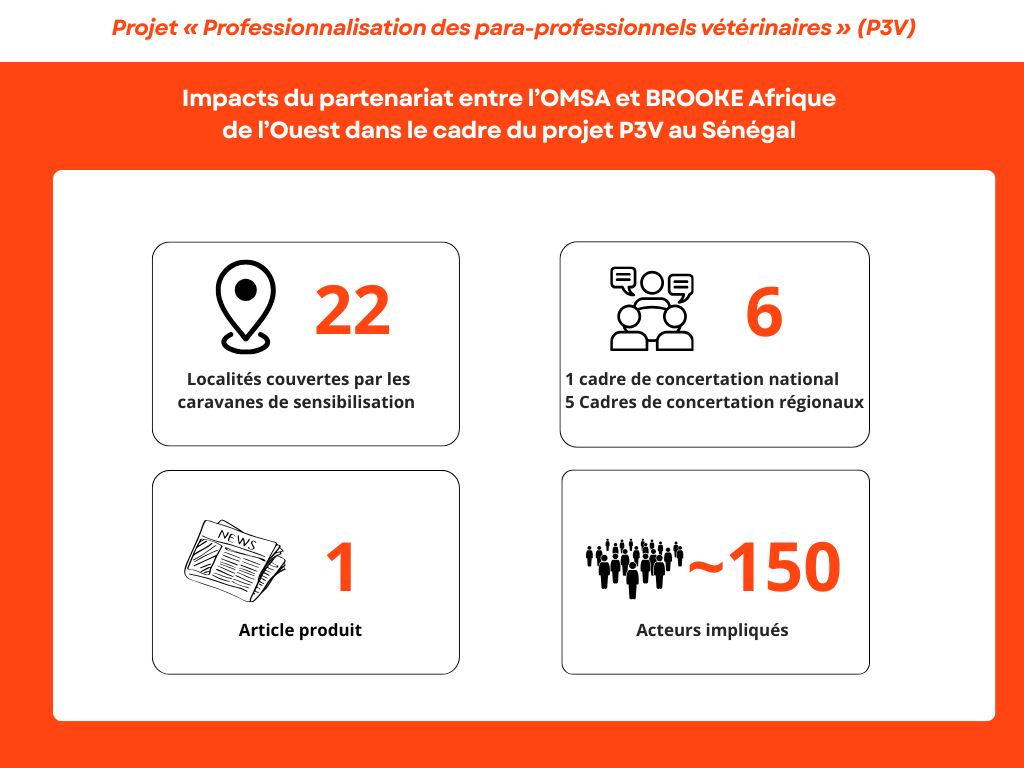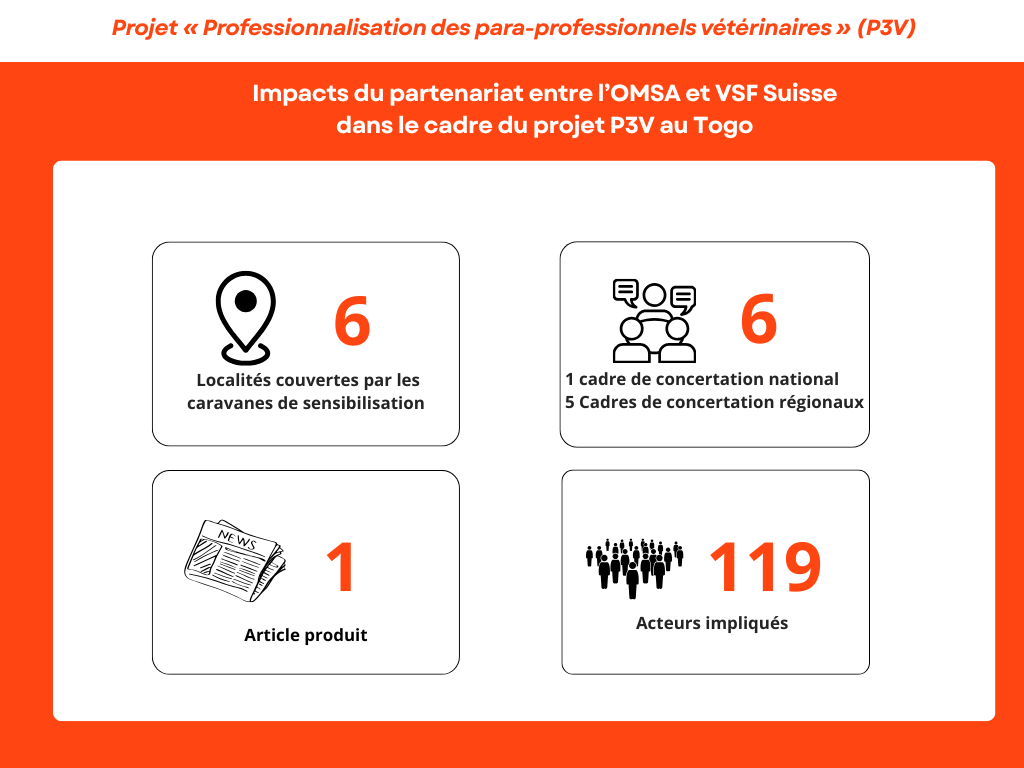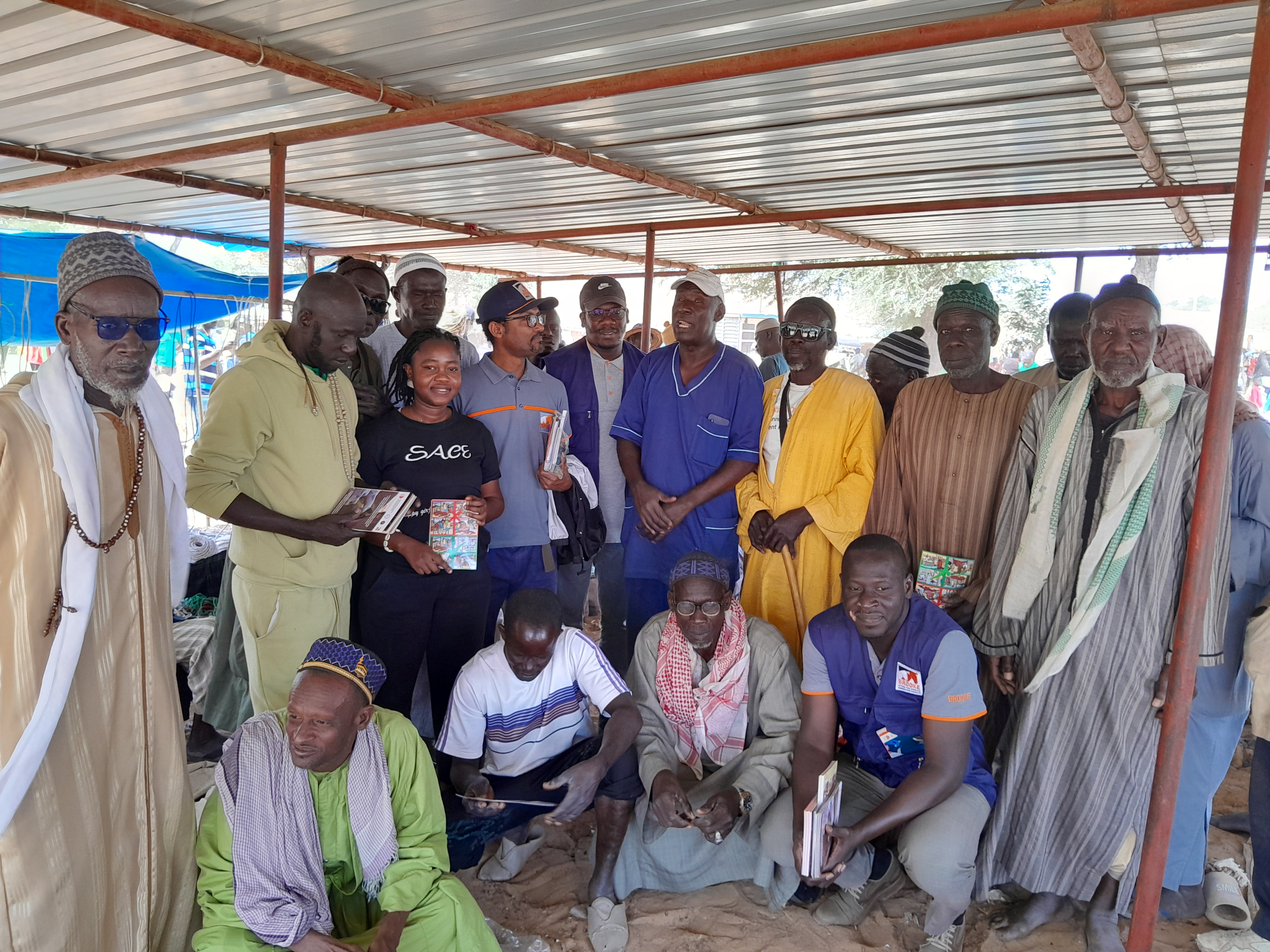
Infographic : Impact of the partnership between WOAH and Brooke – West Africa in the framework of the P3V Project in Senegal.
As part of the implementation of its Component 1, the Professionalisation of Veterinary Para-professionals (P3V) Project, implemented by WOAH with financial support from the French Development Agency (AFD), launched a call for tenders in 2023 to support consultation and communication campaigns on veterinary services in Senegal and Togo.
Following this competitive process, two organisations were selected to support the technical implementation of the activities: Brooke – West Africa in Senegal and Vétérinaires Sans Frontières – Switzerland (VSF-Suisse) in Togo.
These collaborations have made it possible to structure national dynamics around multi-stakeholder consultation and to strengthen the visibility and legitimacy of VPPs in animal health systems.
Brooke’s intervention (in Senegal) helped revitalise the national framework for consultation on the veterinary profession and pharmacy through a series of workshops bringing together key stakeholders.
Five regional frameworks were then established in the country’s agroecological zones. This process helped establish shared governance around veterinary issues and opened up a framework that included all stakeholders involved in the animal health sector, such as veterinarians, public and private veterinary paraprofessionals, livestock farmers’ organisations, consumer associations and professional unions.
Infographic : Impact of the partnership between WOAH and VSF-Suisse in the framework of the P3V Project in Togo.
At the same time, a national communication plan was developed and rolled out using multilingual materials (banners, leaflets, video clips and radio spots) distributed during a large-scale awareness-raising campaign in 22 localities. These campaigns addressed important issues such as self-medication, the rational use of medicines and the illegal practice of veterinary medicine.
Under the mandate of WOAH, VSF-Switzerland (in Togo) has initiated a process to establish a national consultation framework, the result of co-construction workshops with veterinary services, the veterinary statuttory board, VPPs and livestock farmers’ representatives. A draft decree formalising this framework has been submitted to the line-ministry for approval. This marks an important step in the institutional anchoring of this approach. VSF-Suisse also organised five local consultation meetings covering all of the country’s agroecological zones, which resulted in the creation of ten local consultation frameworks.
These meetings were preceded by surveys of 721 livestock farmer households in order to better identify needs for veterinary care and tailor actions to the realities on the ground. Finally, a communication plan on the regulatory framework was developed and disseminated through a mobile awareness-raising caravan, combining posters, radio broadcasts and video screenings in markets and rural areas.
Beyond the implementation of technical activities, collaborations with Brooke – West Africa and VSF-Suisse have laid the foundations for a sustainable transformation of veterinary systems in Senegal and Togo. These partnerships have strengthened the capacity of veterinary services to engage in dialogue with all stakeholders, to structure consultation on solid institutional foundations, and to ensure that the voices of VPPs are heard in decision-making forums.
They have also contributed to a better understanding among livestock farming communities of the issues related to the legality of veterinary services, the quality of care, and the recognition of professional skills. The use of multilingual tools and formats adapted to local realities has promoted broader acceptance of the messages and better anchoring of the practices promoted.





